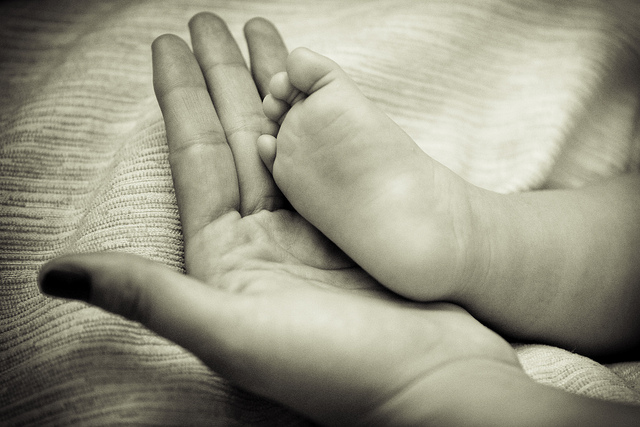
Delaying motherhood can improve life expectancy in women, researchers reveal.
Women who had their last baby after age 33 achieved considerable improvement in their lifespan than mothers who gave birth by age 30 , according to a study in Menopause: the Journal of the North American Menopause Society .
Nearly 462 women participated in the study. For the analysis, researchers from Boston University School of Medicine (BUSM) in United States used data from the Long Life Family Study (LLFS), which included details about 551 families. Giving birth to the last child after age 33 doubled the chances of living up to age 95 years or above compared to having all children before age 29. Mothers who had three or more children, later in life, benefited the most.
"Of course this does not mean women should wait to have children at older ages in order to improve their own chances of living longer," corresponding author Thomas Perls," said in a news release. "The age at last childbirth can be a rate of aging indicator. The natural ability to have a child at an older age likely indicates that a woman's reproductive system is aging slowly, and therefore so is the rest of her body."
The findings come at a time when a significant number of women in the modern world, say nearly 222 million (in developing countries) prefer to delay pregnancy. However ,postponing motherhood is not a good idea , according to health experts and previous studies.
Between 20 and 35 is the ideal age to have children and delayed pregnancy can pose serious risk to both mother and the baby, according to the Royal College of Obstetricians and Gynaecologists (RCOG). "Delay in childbirth is associated with worsening reproductive outcomes: more infertility and medical co-morbidity, and an increase in maternal and foetal morbidity and mortality," the experts told The Guardian, earlier in 2009. "Women who start their family in their 20s or complete it by age 35 face significantly reduced risks."
Late motherhood has also been linked to an increased risk of breast cancer and pregnancy –birth related complications.
Last year February, a team of researchers from RCOG analysed some previous studies on the topic and found that delayed motherhood increased risk of placental abruption, placenta previa, postpartum haemorrhage and preterm delivery. The study also found that pregnancy at 40 years or later doubled the risk of having a stillbirth at 39 or 40 weeks gestation.













!['It's not Mumbai traffic, it's air traffic': Suriya apologises to Mumbai media after paparazzi yelled At Him for making them wait for hours [Watch]](https://data1.ibtimes.co.in/en/full/806234/its-not-mumbai-traffic-its-air-traffic-suriya-apologises-mumbai-media-after-paparazzi.jpg?w=220&h=138)



